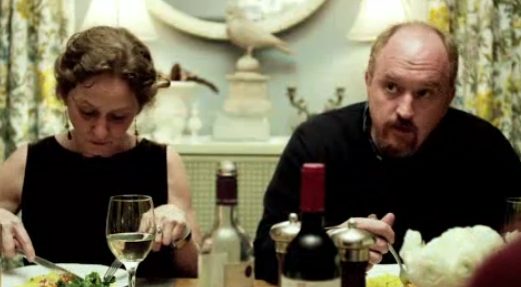Louie: “Telling Jokes/Set Up” (3.2)

“Telling Jokes/Set Up” is a fitting title for this week’s episode, given that its two halves, as with many others in the series, have little to do with each other. The first, and shorter, half of the episode is about the strangeness of his daughter’s jokes. Louis gives as an example, “Who told the gorilla that he couldn’t go to the ballet?” which is less a joke than a thought piece that feels like it was written by a slightly more whimsical David Lynch. Like all of the show’s sections about his daughters, it’s charming. It’s also rather slight, but its low stakes and happy tone are the point, and Louie shot this with light gleaming through a window, creating a world of idyllic home life.
The transition between this first scene and the rest of the episode occurs, as they usually do on the show, in a comedy club. This is the liminal space for Louie, where he and other comedians have the freedom to tell jokes about anything from their daughter’s adorable traits, like Louis C.K. does, or their penis, like his friend Allan Havey. After the show, Havey invites Louis to have dinner with him and his wife, which turns out to be an attempt at setting him up on a date with a woman named Laurie (played by the fantastic Melissa Leo).
The pair initially hates each other, largely just because neither of them wanted to be set up on a date. But they bond from the awkwardness of their hosts fighting and really enjoy each others’ company when they head afterwards to a bar. Drunk afterwards, she briefly drives him and turns a corner into a secluded alley. She offers to go down on him, and he takes her up on this. But then, when she asks him to reciprocate in kind, he refuses, saying that it’s not something he likes to do with someone he’s just met.
-

-

-

-

-

-

-

-

-

-

-

-

-

-

-

-

-

-

-

-

-

-

-

-

-

-

-

-

-

-

-

-

-

-

-

-

-

-

-

-








































